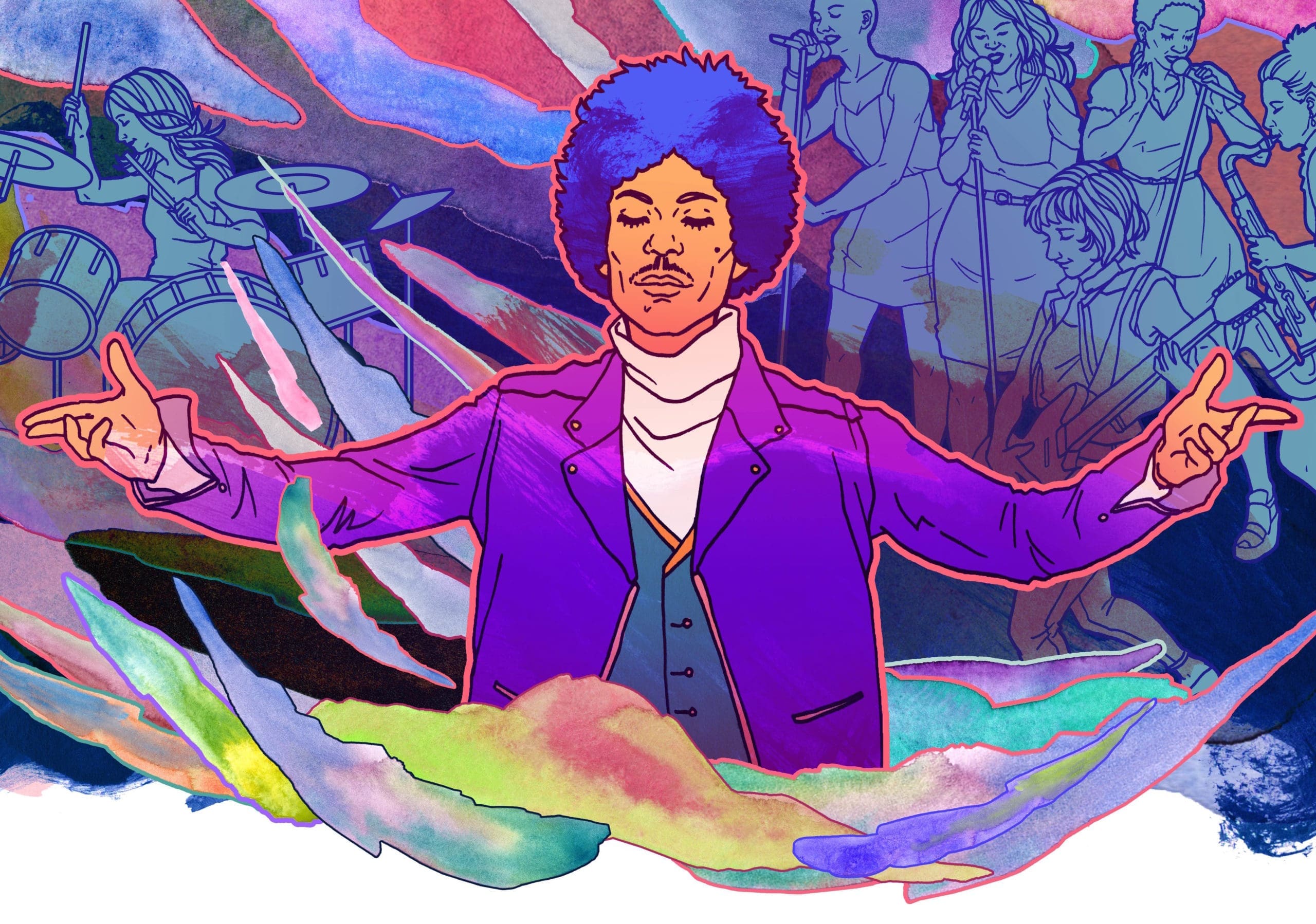For our summer issue, we tapped music reporter Andrea Swensson (of MPR 89.3 the Current fame) to paint a picture of an evening at Prince’s infamous Paisley Park. After she had submitted her original work and shortly before we were sending the issue to the printer, Prince suddenly died. Swensson quickly reworked her article for our magazine while simultaneously being tapped by media outlets across the globe to cover the Purple One’s passing. We asked her a few questions about the experience.
In our summer issue, you reflect on your surreal Prince encounter. Looking back, does that experience take on new meaning?
Absolutely. The encounter I wrote about was actually one of many experiences I had with Prince and Paisley Park, but that time I spent with him one-on-one stands out now as one of the most treasured memories. In the days following Prince’s passing, I found myself repeating again and again these things I learned not just about his artistry, but about his humanity: He was kind. He was so funny. He was warm and gracious and sweet. I want everyone to know that about him.
How did covering Prince and Paisley Park help shape your career?
It introduced me to an audience of passionate Prince fans from around the world and taught me so much about building trust with a source and nurturing professional relationships. I still feel so close to those experiences, so I can’t really say what the larger impact has been on my career. But I can say with certainty that writing about Prince and my experiences at Paisley Park made me a better writer. I pushed myself to write the hell out of those stories, because I could see how tirelessly he was working to reinvent and evolve. Watching him work in such an intimate setting was incredibly inspiring, and he made me want to be excellent.

Illustration by Allegra Lockstadt
In the days following Prince’s death, you were a go-to resource for media outlets around the world. What was that like?
Surreal. So surreal. From the moment I confirmed that he had died, I was processing this enormous loss on air and confronting my grief with cameras trained on me. I think I spent something like six straight hours standing in the rain and then the beating-down sun in front of Paisley Park, watching through bleary eyes as fans hung up signs and brought an endless array of purple balloons to the property while I talked to reporters in Ireland, Australia, London, New York, Los Angeles and of course my colleagues back at MPR. Then it was all the local TV stations. On my way to the KARE 11 studios, it was the first time that day I had been alone with my thoughts, and the grief hit me like a monsoon.
I kept repeating these stories over and over: I drew a little picture in my notebook of Prince, and he liked it. The next thing I knew, I was at every Paisley Park event — and then I was shaking his hand. I don’t know why any of it happened. It was all such an honor. I don’t know how to describe how it feels to know that he is gone. Minneapolis is hurting. I’ve never seen a city ache like this. Do you think he knew we loved him this much? Did we even know we loved him this much?
Did you anticipate the global outpouring of grief and emotion we saw from Prince fans?
I don’t think anyone could have anticipated how strong that reaction was. At times I wanted to scream, “Where have you all been? Didn’t you guys know he was still making music, still throwing all these parties, still so active and alive?” (Grief is weird.) For years it had been so strange to me to watch Prince drift in and out of the global spotlight. We were working so closely with him and his team at the Current that we were talking about him constantly, almost covering him like he was this local artist just doing things out in Chanhassen. But then he would do something like the Grammys, and it would sink in: OMG, this is PRINCE we’re dealing with. He’s a cultural phenomenon. He means so much to so many people. He was universally beloved.
What do you think will be Prince’s legacy?
He gave us permission to be bold and to be sincerely odd. To smash our way through boundaries and stereotypes. To be wholly, unapologetically ourselves. He challenged our notions about sexuality, relentlessly championed women and artists of color, and was one of the first artists to really disregard the entire concept of genre, merging rock ’n’ roll with funk, new wave and gospel. One of the last things I heard him say was “Free yourself,” a lyric from one of his new songs, and when I think back on it now, that’s really what he was fighting for throughout his entire career: freedom from oppression, freedom from societal norms, freedom from crappy recording contracts, freedom from other people’s expectations. He was courageous in his quest for liberation.


